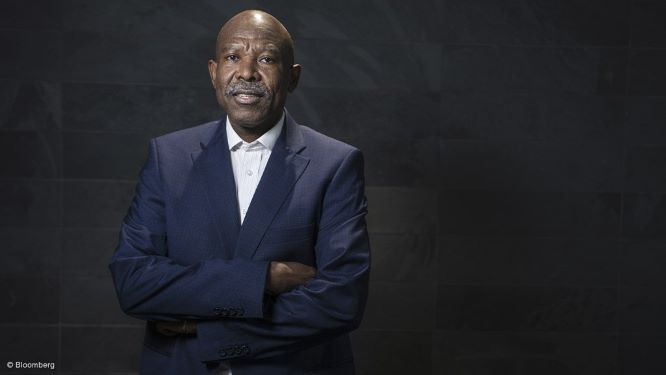
South African government-bond yields could drop and
the nation may hang on to its last investment-grade credit rating if policy
makers implement the necessary reforms, central bank Governor Lesetja Kganyago said.
Moody’s Investors Service is scheduled to deliver
its latest assessment of South Africa’s credit rating on November 1. It has the
country on a stable outlook, but government borrowing has increased to help
keep power utility Eskom afloat, economic growth has slowed and business
confidence is near the lowest in more than three decades.
“South Africa’s credit rating is in the hands of
South African policy makers,” Kganyago said in an interview with Bloomberg
Television at the annual meetings of the International Monetary Fund and World
Bank in Washington on Thursday. “South African policy makers know exactly what
must be implemented so that Moody’s do not venture” to a downgrade, he said.
Moody’s has urged the government to rein in spending
and warned that the additional support announced for Eskom in July was “credit
negative.”
“If we do the things that Moody’s raised as credit
concerns then we should not be worried about a downgrade,” Kganyago said.
“Based on global financing conditions, South Africa’s government bond yields
should be lower than they are. If we do the right things, they will reprice.”
While the central bank usually refrains from
commenting on fiscal policy, Kganyago and his Monetary Policy Committee have
over the past year become more vocal on the urgent need for reforms, especially
amid suggestions that the economy should be boosted by cutting interest rates.
The economic policy paper that the National
Treasury released in August, which contains a package of suggested reforms to
boost growth, is a “welcome development”, Kganyago said.
Eskom has amassed R450-billion of debt and relies
on state bailouts to remain solvent. It’s battled to meet demand for
electricity because most of its plants are old and have been poorly maintained.
The central bank is assessing the risks Eskom poses
to South Africa’s economic growth and financial stability, Kganyago said.
If Eskom is unable to meet electricity demand –
even at the current low rate of expansion in GDP – it could become even more
constrained if growth accelerates, he said. That’s why it’s important that the
Treasury paper talks about increasing generation capacity, he said.
Central bank stress tests have found Eskom’s debt is distributed is a way that wouldn’t pose a systemic risk to the financial system, he said. http://www.engineeringnews.co.za/article/south-africa-may-avoid-moodys-cut-with-reforms-kganyago-says-2019-10-18
More news
- PART 2: HARNESSING THE POTENTIAL OF HIGH SULPHUR FLY ASH IN CONCRETE PRODUCTION
- PART 1: HARNESSING THE POTENTIAL OF HIGH SULPHUR FLY ASH IN CONCRETE PRODUCTION
- PART 2: DESIGN AND CONSTRUCTION OF SLAB-ON-GROUND: APPLYING ACI 318
- DESIGN AND CONSTRUCTION OF SLAB-ON-GROUND: APPLYING ACI 318
- DOK-ING’s innovative electric mining equipment unveiled at ElectraMining

